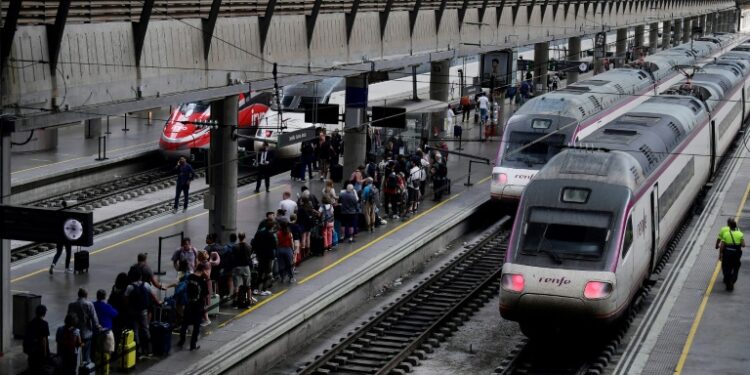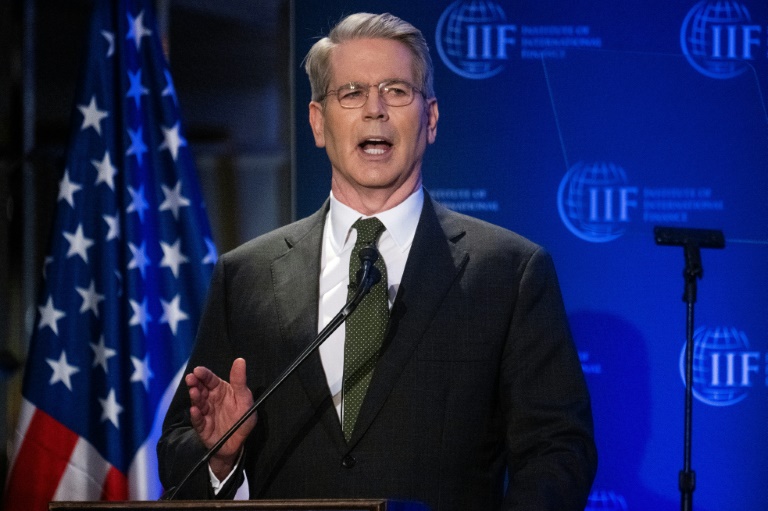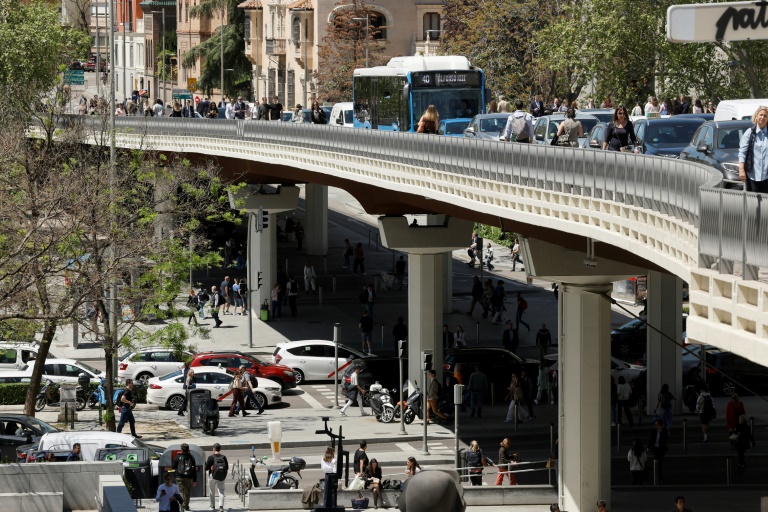Madrid (AFP) – Spain began to investigate Tuesday the causes of the crippling blackout that disrupted millions of lives across the Iberian Peninsula, with a court probing potential “sabotage” of critical infrastructure. Telephones, internet and lights were working again, train services resumed, shops reopened and workers flocked back to offices in Spain and Portugal following the outage Monday that lasted up to 20 hours in some places.
Prime Minister Pedro Sanchez said his government had set up a commission to investigate what caused the incident and refused to rule out any hypothesis. “All the necessary measures will be taken to ensure that this does not happen again,” he told a press conference. In a separate probe, Spain’s top criminal court, the Audiencia Nacional, said it was investigating whether the blackout was “an act of computer sabotage on critical infrastructure” that could be classified as “a terrorism offence.” Although the causes are unknown, “cyberterrorism is among” the potential explanations, and the “critical situation” generated for the population meant an investigation was necessary, the court said.
But the Spanish grid operator Red Electrica (REE) and a Portuguese government spokesman ruled out a cyberattack earlier in the day. “There was no type of intrusion in Red Electrica’s control systems that may have caused the incident,” REE’s director of operations, Eduardo Prieto, said at a news conference. Sanchez also denied reports that a shortfall of nuclear energy was behind the outage, saying proponents of the suggestion were “lying or demonstrating their ignorance” in a response to criticism from the far-right Vox party. Nuclear power, which the leftist government has planned to phase out, “was no more resilient” than other electricity sources and “with a greater dependence on nuclear, the recovery would not have been so quick,” Sanchez said.
Portuguese Prime Minister Luis Montenegro, who is facing an early general election next month, said his government had requested an independent audit of electrical systems from the EU Agency for the Cooperation of Energy Regulators (ACER) and created a commission to assess the handling of the crisis. The European Commission was also looking into the lessons that could be drawn from an incident of an “unprecedented magnitude,” chief spokeswoman Paula Pinho said.
For Pratheeksha Ramdas, a senior analyst at the consulting firm Rystad Energy, the episode highlighted the region’s “heavy dependence on cross-border electricity flows.” The high percentage of renewables in Spain’s energy mix “exposed difficulties in balancing intermittent supply, while Portugal’s complete reliance on imports underscored its lack of flexibility and energy storage,” Ramdas wrote in a research note.
People in both countries began to recover a semblance of normalcy Tuesday after the chaos and confusion, with businesses and schools reopening. Susana, a 50-year-old finance sector worker in Madrid who declined to give her full name, said she struggled Monday during her 90-minute trek home on foot — in heels. The lesson she learned? “Wear sneakers,” she joked in a cafe where a television replayed images of the chaos. Some people, like 32-year-old lawyer Marcos Garcia, welcomed the pause as “an afternoon of respite, a technology break, an impromptu disconnection,” adding that it revealed “this total dependence on technological systems.”
High-speed Spanish train lines, including those connecting Madrid, Barcelona and Seville, were back up and running on Tuesday, and regional services were gradually being restored, said national railway operator Renfe. Madrid’s Atocha station was packed with expectant travellers on Tuesday who cheered every time a departure was announced. Monday’s disruption saw huge tailbacks on roads, customers rushing to withdraw cash from banks and residents finding themselves trapped in lifts. Thousands of stranded travellers slept in train stations overnight and streets were plunged into darkness with all lampposts and traffic lights off. The episode also affected areas of southwestern France as well as in Morocco and Denmark’s gigantic Arctic territory of Greenland.
© 2024 AFP


















